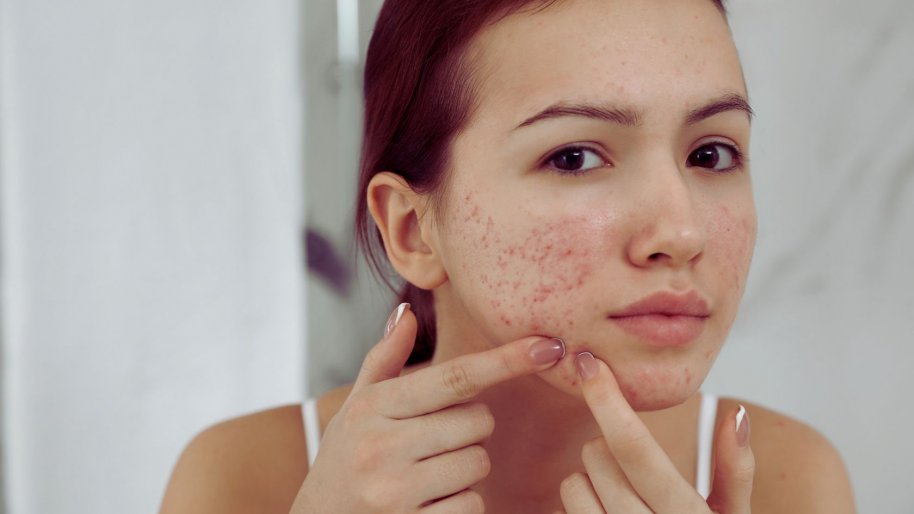The one thing we all hate to experience is pimples, acne, and bad skin days. The thought of acne may have been more familiar growing up, especially in our teenage years. However, acne may still be present as zits and full-blown breakouts in our adult years.
Long-standing acne is one of the most severe skin conditions one may face. This not only takes a toll financially but, most importantly, it takes a toll on our self-confidence. At the same time, some products that claim to combat acne are not functional.
Understanding the causes of acne makes it easier to find successful treatments, especially for different skin types. Read on to learn more.
Understanding Acne
Clogged hair cells induce acne. Acne, which includes whiteheads, blackheads, and pustules, occurs where oil (sebaceous) glands are active. This skin condition affects the face, neck, torso, and back.
Acne is more than just a cosmetic problem. Severe acne results in flare-ups of big, red, agonising cysts or nodules that may eventually turn into scars. As such, acne has been linked to anxiety, sadness, and low self-esteem.
Acne usually clears up during puberty. It can continue or commence at maturity. Adult acne is triggered by medical or chemical factors.
The 4 Common Triggers of Acne
1. Hormones
Prior to adolescence, your adrenal glands begin producing hormones, such as androgen. As a result, the sebaceous glands adjacent to the hair shaft create more sebum, which clogs pores. Clogged pores become more common as androgen secretion rises during adolescence.
2. Occlusion of the Oil
When skin cells that line the tip of the hair follicle shaft do not shed properly, they can clog it. As a result, clogged pores develop.
3. Bacterial Irritation
Propionibacterium acnes can build up in the follicles of hair strands. Acne is caused by these microbes.
4. Stress
Stress raises androgen production in the ovaries. Through this, acne has the potential to worsen.
Alleviating Acne: Treatment and Medication
Acne usually clears up on its own but may take as long as five years or more to persist. As a result, medical attention is needed.
Doctors treat acne efficiently and safely. Physicians try to remove whiteheads and blackheads, reduce blemishes, redness, and edema, avoid skin discolouration, and avoid infections.
Options for treatment depend on medical history and personal preference. Topical prescription acne remedies today include retinoids (such as isotretinoin) and antibiotics, with or without benzoyl peroxide. These products remove skin impurities and decrease inflammation but may cause aggravated, sensitive, and dry skin.
When acne is severe or inflamed, oral acne medicines may be beneficial. For this, antibiotics, oral contraceptives, and anti-androgens can be beneficial. Meanwhile, injections of steroids are best for bigger nodules and cysts.
You may not need prescription medicines if your acne is mild and sporadic. Products that do not require a prescription may be less efficient than prescription drugs.
We treat acne and many other skin conditions.
Acne: Tips, Self-Care, Exercise, and Nutrition
There are various ways to manage or avoid acne. Here are some things you must avoid:
- Acne outbreaks causing inflammation and fibrosis
- Using abrasive cleaners, toners, and washes
- Donning constrictive clothing in acne-prone areas
- Hot, muggy weather
- Glossy sunscreens and heavy makeup
- Smoking cigarettes
In addition, remember to use warm water, a mild cleanser, and a soft facial towel to remove the oil. Excessive cleaning can dehydrate and irritate the skin, aggravating acne.
Moreover, exercise and good nutrition may help clear up acne. For one, exercise is proven to reduce stress. Acne-causing androgens are elevated by stress. Physical exercise may lower androgen levels and hydrocarbon output.
In regards to diet and nutrition, simple carbohydrates and dairy create hormones that cause acne. Acne may be exacerbated by milk, cocoa, and cheese. Visible Changes are Adelaide’s number #1 skin care clinic.
Conclusion
Sometimes, what it takes to avoid and treat acne is being knowledgeable about it. As such, applying the right techniques for what your skin needs is the best step forward. For this, reach out to your trusted dermatologist and follow the best practices to take care of your skin.
Are you in need of acne scar treatments? Visible Changes is here to help you address skin concerns, treat them, and give you desirable results. Contact us today!

